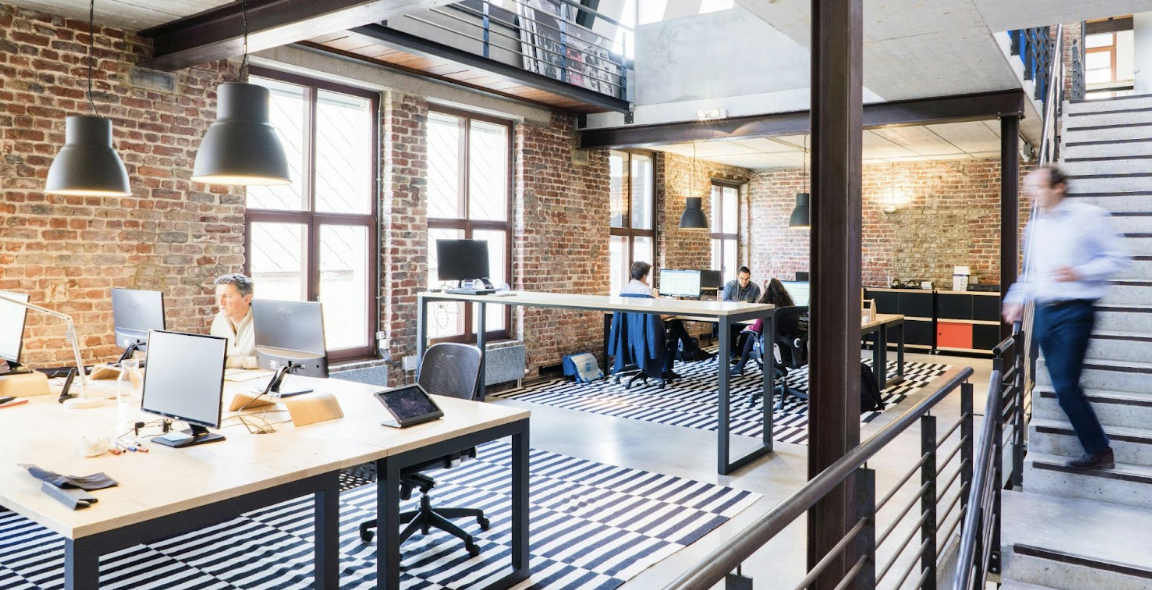After a day full of productivity and creativity at Espai114, our coworking center in Badalona, there is no better way to disconnect than by taking a break with a cup of coffee in hand in a café. The day can be intense, between meetings, calls and moments of inspiration, but a break is always welcome to recharge your batteries, right?
Luckily, around Espai114 there are real treasures hidden where you can relax, socialize or simply let yourself be carried away by the aroma of freshly brewed coffee. These corners are not only cafeterias, but charming places that offer you a unique experience to enjoy alone, for informal chats with colleagues, or even for a small meeting outside the office. Because we know that many times, the best ideas are born when you give yourself that much-needed break.
We’ve selected our favourite coffee shops, all within a 10-minute walk, so you can enjoy a different environment without wasting time on the move. Whether you’re looking for specialty coffee, a good artisanal cake, or just the right atmosphere to inspire you, these places offer just what you need.

- The Café de les Antípodes – Carrer de Francesc Layret, 113
An ideal place to disconnect from the hustle and bustle and enjoy a specialty coffee in a serene setting.
Opening hours: Monday to Friday from 8:00 a.m. to 8:00 p.m. | Saturday and Sunday from 9:00 a.m. to 9:00 p.m.

- Forn Can Bertran – Carrer Mar, 6
With more than 100 years of tradition, this place is an emblem of artisanal pastries. Their sweets, made with all the care in the world, are the perfect accompaniment to a coffee at any time of the day.
Opening hours: Monday to Saturday from 7:30 a.m. to 9:00 p.m. | Sundays and holidays from 8:00 a.m. to 2:30 p.m.

- Churrería Beltran – Plaça de la Vila, 6
A Badalona classic that continues to captivate with its crunchy churros and thick hot chocolate. Ideal for those days when the body is craving something sweet.
Opening hours: Tuesday to Friday: 7:30 to 13:00 and from 17:00 to 20:30 Saturday: 7:30 to 13:30 and from 17:00 to 20:30 Sunday: 7:30 to 13:30 Monday: Closed

- Amauta Coffee & Roastery – Carrer del Carme, 53
If you are a lover of good coffee, this place is a paradise. They roast their own grain, ensuring an authentic experience in every sip.
Opening hours: Tuesday to Friday: 9:00 to 14:00 and 15:00 to 18:00 Saturday: 9:00 to 18:00 Sunday: 9:00 to 14:00 Monday: Closed

- AO – Carrer de Ribas i Perdigó, 48
It stands out for its Japanese pastries and amazing matcha tea. Perfect for a slightly more special break.
Opening hours: Tuesday and Wednesday from 9:00 a.m. to 5:00 p.m. | Thursday and Friday from 9:00 a.m. to 7:00 p.m. | Saturdays from 10:00 to 14:00

- Neules Canals – Carrer del Canonge Baranera, 50
This place is synonymous with tradition. Specialists in artisanal sweets, Neules Canals offers a perfect corner to disconnect while enjoying traditional flavours.
Opening hours: Monday to Saturday: 8:15 to 13:30 and 16:30 to 20:30 Sunday: Closed

- La Masovera – Carrer de Mar, 37
A warm and familiar space, where homemade pastries are the main protagonists. Every detail here is made with love, and it shows in the relaxed atmosphere and in every bite.
Opening hours: Monday to Saturday from 8:00 a.m. to 9:00 p.m. | Sunday from 8:00 a.m. to 10:00 p.m.

- BERTRAN – Carrer del Canonge Baranera, 46
A lifelong café in Badalona, known for its cozy atmosphere and delicious coffees. A classic for those looking for quality and tradition.
Hours: Monday to Saturday from 7:15 a.m. to 9:00 p.m.
All these cafes are just a few minutes away from Espai114. So, if you work in our coworking center, you have no excuse not to take a break and enjoy a good coffee in these wonderful corners. Whether you need a quick break or are looking for a place to let your ideas run wild, these places offer you the best of both worlds: good atmosphere and excellent coffee or pastries.
Working in a coworking space like Espai114 is not only about being in the office. Many times, the best ideas and the most important conversations come when you take some time for yourself, when you step away from the desk a bit and enjoy a good cup of coffee in an inspiring environment. And that’s exactly what you’ll find in these Coffee shops: places where the atmosphere invites you to relax, connect with others, or simply enjoy the moment.
So the next time you feel blocked or need a break, you know that just a few steps from Espai114 these coffee shops are waiting for you to take a moment for yourself. Each of them has something special to offer, and we’re sure you’ll find your favorite among them. Don’t hesitate to explore them and find out which one suits your style best!
We are the Badalona Business Centre, to give visibility and opportunities to your business. At Espai 114 we form a team together; We want to inspire you and accompany you.





























